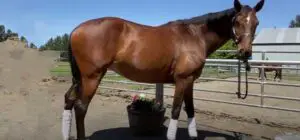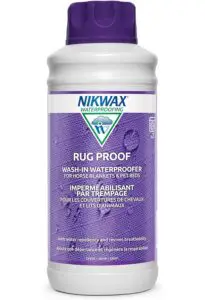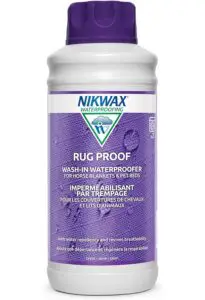To treat summer sores in horses, practice proper fly control, maintain a regular deworming schedule, and keep the horse's stall clean. Additionally, use Vetericyn Plus® Antimicrobial Equine Wound and Skin Care Liquid to treat wounds and prevent larvae infestation.
These measures will help speed up healing and prevent further complications. Summer sores can be a troublesome issue for horse owners, causing discomfort and potential long-lasting damage if not properly treated. These sores are a result of larvae from stomach worms that migrate and cause inflammation, leading to non-healing lesions.
In order to effectively treat summer sores in horses, it is important to implement preventative measures such as fly control, deworming, and maintaining a clean environment. Additionally, using products like Vetericyn Plus® Antimicrobial Equine Wound and Skin Care Liquid can aid in the healing process and prevent further infestation. This article will provide an in-depth guide on how to treat summer sores in horses and alleviate the discomfort experienced by these equine animals.
Understanding Summer Sores In Horses
To effectively treat summer sores in horses, it is recommended to practice proper fly control, maintain a regular deworming schedule, and keep the stall clean. Treating any wounds or sores with Vetericyn Plus® Antimicrobial Equine Wound and Skin Care Liquid can help in healing and preventing larvae infestation.
Summer sores in horses can be a frustrating and uncomfortable condition for both horses and their owners. These sores are caused by a type of parasitic worm larvae called Habronema or Draschia, which are commonly found in the stomachs of horses.
When flies lay eggs on open wounds or moist areas, such as the eyes, mouth, or genitalia, the larvae can infect the horse and cause summer sores to develop.
What Are Summer Sores In Horses?
- Summer sores are open, non-healing wounds that commonly occur on the lower limbs, fly-bitten areas, and moist regions of the horse's body.
- They are caused by the larvae of parasitic worms entering the horse's body through open wounds.
- These sores can be painful, itchy, and prone to infection if not properly treated.
Causes And Risk Factors Of Summer Sores In Horses
- Flies: Flies are the main culprits in spreading the larvae of the parasites onto open wounds or moist areas of the horse's body.
- Poor fly control: Insufficient fly control measures can increase the risk of flies laying eggs on the horse, resulting in summer sores.
- Unclean environments: Dirty and unhygienic stable conditions create an ideal breeding ground for flies and increase the chances of a horse developing summer sores.
- Wounds or moist areas: Open wounds caused by accidents, bites, or scrapes are susceptible to fly infestation and subsequent summer sore development.
- Weakened immune system: Horses with compromised immune systems due to illness or other factors may be more prone to developing summer sores.
The Lifecycle Of Summer Sore Larvae
- Eggs: Flies deposit eggs on open wounds or moist areas of the horse's body.
- Larvae: The eggs hatch into larvae that feed on bacteria, creating a local inflammation response in the horse's tissues.
- Migration: The larvae migrate within the wound, causing severe itching and further inflammation.
- Non-healing wounds: The persistent itching leads to the horse chewing on the lesion, resulting in proud flesh development and a non-healing wound.
Understanding summer sores in horses is essential for effective prevention and treatment. By implementing proper fly control measures, maintaining a clean environment, and promptly treating any wounds or sores, you can help prevent summer sores from negatively impacting your horse's health and well-being.
Preventing Summer Sores In Horses
To treat summer sores in horses, it is important to practice proper fly control, maintain a regular deworming schedule, and keep the horse's stall clean. At the first sign of a wound or sore, use Vetericyn Plus® Antimicrobial Equine Wound and Skin Care Liquid to promote healing and prevent larvae from causing further damage.
Effective Fly Control Measures For Preventing Summer Sores:
- Use fly repellents: Apply fly repellents to your horse regularly to deter flies from landing on their skin.
- Use fly masks and sheets: Equip your horse with a fly mask and sheet to provide additional protection from flies.
- Use fly traps: Set up fly traps around your horse's stall or pasture to catch and kill flies.
- Remove manure regularly: Flies are attracted to manure, so removing it promptly can help reduce the fly population.
- Keep the barn clean: Clean the barn regularly to eliminate any potential breeding grounds for flies.
Regular Deworming Schedule To Reduce The Risk Of Summer Sores:
- Consult with your veterinarian: Talk to your veterinarian to develop a deworming schedule that is appropriate for your horse.
- Use broad-spectrum dewormers: Use dewormers that target a wide range of parasites to minimize the risk of summer sores.
- Follow the recommended dosage: Administer the dewormers according to the recommended dosage to ensure their effectiveness.
Maintaining A Clean Stall Environment To Prevent Summer Sores:
- Remove soiled bedding: Clean your horse's stall regularly and remove any soiled bedding to prevent the accumulation of bacteria and larvae.
- Provide proper ventilation: Ensure that your horse's stall has proper ventilation to prevent the buildup of moisture, which can attract flies.
- Disinfect the stall: Use disinfectants to clean and sanitize the stall to minimize the risk of infection.
- Regularly inspect your horse's skin: Check your horse's skin regularly for any wounds or sores and treat them promptly to prevent summer sores from developing.
By implementing these effective fly control measures, following a regular deworming schedule, and maintaining a clean stall environment, you can significantly reduce the risk of summer sores in your horses. Remember, prevention is key in keeping your horses healthy and free from these unpleasant and troublesome lesions.
Treating Summer Sores In Horses
To effectively treat summer sores in horses, it is important to implement proper fly control, regular deworming, and a clean stall. Additionally, using Vetericyn Plus® Antimicrobial Equine Wound and Skin Care Liquid at the first sign of a wound or sore can help speed up healing and prevent larvae from causing further damage.
Identifying And Diagnosing Summer Sores In Horses:
- Summer sores in horses are caused by the larvae of stomach worms that invade open wounds or moist areas of the skin.
- Common signs of summer sores include non-healing or slow-healing lesions, excessive itching, and the presence of proud flesh.
- To diagnose summer sores, your veterinarian may perform a physical examination, collect a sample for laboratory testing, and rule out other possible causes of the wounds.
Topical Treatments For Summer Sores In Horses, Including Vetericyn Plus® Antimicrobial Equine Wound And Skin Care Liquid:
- Vetericyn Plus® Antimicrobial Equine Wound and Skin Care Liquid is a highly effective topical treatment for summer sores in horses.
- This product helps speed up the healing process and prevents the larvae from further infesting the wounds.
- Vetericyn Plus® is safe to use, non-toxic, and does not cause any harm to healthy tissues.
- Simply apply the liquid directly to the summer sores, ensuring thorough coverage, and repeat the application as directed by your veterinarian.
Bandaging Techniques To Promote Healing And Prevent Further Irritation:
- Proper bandaging is an essential part of treating summer sores in horses.
- Using sterile materials, start by cleaning the wound with a suitable antiseptic solution.
- Apply a non-stick wound dressing over the summer sores to protect the area and promote healing.
- Secure the dressing in place using cohesive bandages or adhesive tape.
- Regularly check and change the bandages as directed by your veterinarian to prevent infection and to ensure proper healing.
Remember, early identification and prompt treatment are crucial when dealing with summer sores in horses. Consult your veterinarian for a proper diagnosis and to determine the most suitable treatment plan for your horse. Using the right topical treatments like Vetericyn Plus® and practicing proper bandaging techniques will aid in the healing process and prevent further irritation.
Professional Treatment Options For Summer Sores
To effectively treat summer sores in horses, it is important to implement proper fly control measures, follow a regular deworming schedule, and maintain a clean stall. When a wound or sore is noticed, using a topical treatment like Vetericyn Plus® Antimicrobial Equine Wound and Skin Care Liquid can help speed up healing and prevent larvae from causing further damage.
Summer sores in horses can range from mild to severe, and in some cases, professional treatment may be necessary for effective management. Here are three professional treatment options that can help in treating summer sores in horses:
- Veterinary intervention for severe cases of summer sores:
- In severe cases where the summer sore is causing extreme discomfort or not responding to initial treatment, it is important to seek veterinary intervention.
- A veterinarian will assess the severity of the sore and may recommend more aggressive treatment options to promote healing.
- They may also perform tests to rule out any underlying health conditions that may be contributing to the non-healing of the sore.
- Veterinarians may also provide guidance on the use of specific medications or treatments for managing inflammation and itching associated with summer sores.
- Surgical options to remove non-healing lesions:
- For non-healing summer sores that persist despite veterinary intervention, surgical removal of the lesion may be necessary.
- Surgical excision involves the removal of the non-healing tissue to promote healing and prevent further irritation.
- This procedure is typically performed under anesthesia by a qualified veterinarian and may require post-operative care and management.
- Medication options to control inflammation and itching:
- In some cases, summer sores can cause significant inflammation and itching, which can worsen the condition and impede healing.
- Veterinarians may prescribe medication options such as corticosteroids or non-steroidal anti-inflammatory drugs (NSAIDs) to help control inflammation and provide relief from itching.
- These medications can help reduce the discomfort associated with summer sores and promote the healing process.
It is important to consult with a veterinarian to determine the most appropriate professional treatment option for your horse's specific condition. They will be able to provide guidance and develop a tailored treatment plan that addresses the severity of the summer sore and helps ensure the best outcome for your horse's health and well-being.
Tips For Managing Summer Sores In Horses
To treat summer sores in horses, proper fly control, regular deworming, and a clean stall are important. Use a topical treatment like Vetericyn Plus® Antimicrobial Equine Wound and Skin Care Liquid to speed up healing and prevent larvae from causing more damage.
Summer sores in horses can be a frustrating and challenging issue to deal with. These open wounds, caused by the larvae of stomach worms, can be painful for your horse and may lead to further complications if not properly managed.
Here are some tips to help you effectively treat and manage summer sores in horses:
Regular Monitoring And Cleaning Of Wounds:
- Check your horse's wounds regularly to monitor their progress and identify any signs of infection or complications.
- Clean the wounds with a mild antiseptic solution to reduce the risk of infection.
- Remove any debris or dead tissue from the wound to promote healing.
Importance Of Proper Wound Care And Hygiene:
- Keep the affected area clean and dry to prevent bacterial growth and further irritation.
- Apply a topical antimicrobial solution, such as Vetericyn Plus® Antimicrobial Equine Wound and Skin Care Liquid, to speed up the healing process and prevent larvae reinfestation.
- Consult with your veterinarian for specific wound care instructions and recommendations.
Maintaining A Healthy And Balanced Diet For Horses To Support The Healing Process:
- Provide your horse with a diet that is rich in essential nutrients, including vitamins, minerals, and proteins, to support the healing process.
- Ensure that your horse has access to clean and fresh water at all times to promote hydration and overall health.
- Consider incorporating supplements, such as omega-3 fatty acids, which have been shown to have anti-inflammatory properties and support wound healing.
Remember, summer sores can take time to heal, and it's essential to be patient and consistent with your management approach. If you notice any worsening of the sores or signs of infection, contact your veterinarian for further evaluation and guidance.
By implementing these tips and working closely with your veterinarian, you can effectively manage and treat summer sores in horses, helping your horse to heal and recover.

Credit: springhillequine.com
Frequently Asked Questions For How To Treat Summer Sores In Horses
What Topical Treatment With Summer Sores In Horses?
To treat summer sores in horses, practice proper fly control, deworm regularly, and keep the stall clean. Use Vetericyn Plus® Antimicrobial Equine Wound and Skin Care Liquid to treat wounds and prevent larvae infestation.
How Long Do Summer Sores Take To Heal Horses?
Summer sores in horses can take a long time to heal, lasting for years and getting worse over time.
What Is The Best Wormer For Summer Sores?
The best wormer for summer sores is Ivermectin or other drugs in the same class.
Should You Wrap A Summer Sore?
Wrapping summer sores is recommended. Use adhesive or padded bandages to prevent flies from feeding on the wound.
Conclusion
Summer sores in horses can be a challenging issue to treat, but with proper care and prevention measures, it can be managed effectively. By implementing strategies such as regular fly control, consistent deworming, and maintaining a clean stall environment, you can reduce the risk of your horse developing these troublesome lesions.
Additionally, using topical treatments like Vetericyn Plus® Antimicrobial Equine Wound and Skin Care Liquid can aid in speeding up the healing process and preventing larvae from finding a home in the wounds. It is important to act promptly when you notice any wounds or sores on your horse, as untreated summer sores can lead to nonhealing lesions that worsen over time.
Consult with your veterinarian for the most effective treatment plan, which may include wound cleaning, administration of medications such as ivermectin and corticosteroids, and proper bandaging to prevent flies from feeding on the wounds. By following these guidelines, you can effectively treat and prevent summer sores in horses, ensuring their health and well-being.








